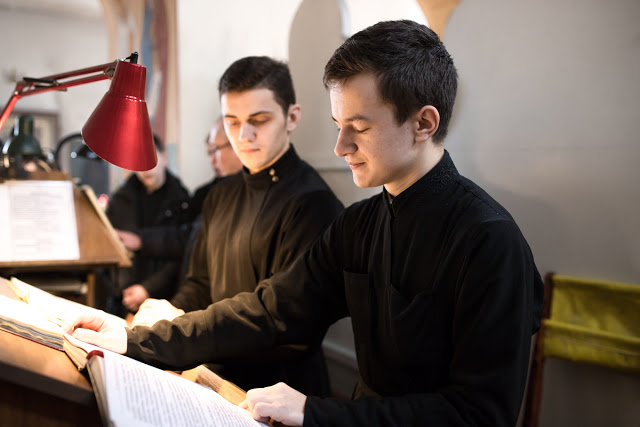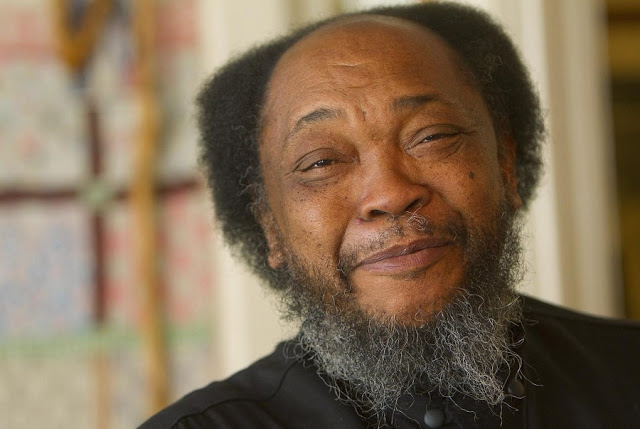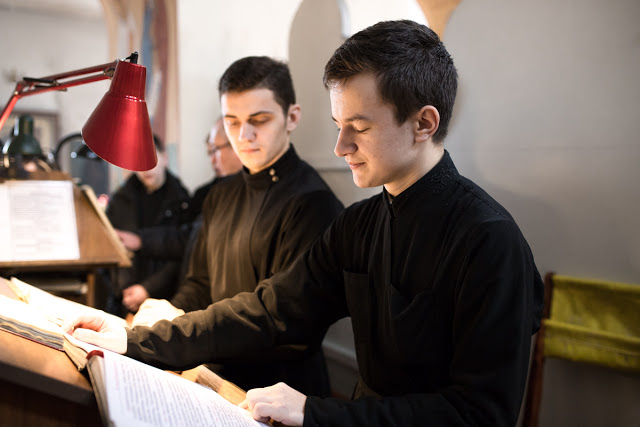
His Eminence Metropolitan Jonah (Paffhausen) became Orthodox in the age of 19 having been received from the Episcopalian Church in San Diego at the parish of Our Lady of Kazan (Moscow Patriarchate). In 1981 he graduated with a B.A. from the University California (Santa Cruz) and enrolled in St. Vladimir’s Seminary, where he earned his master’s degrees in divinity (1985) and theology (1988).
The editor of Historical Studies of the Russian Church Abroad conducted this interview on November 5, 2017 in the parish in the honor of the icon of the Mother of God “Joy of All Who Sorrow” in Cumming, Georgia. Metropolitan Jonah and Deacon Andrei Psarev both presented there at the conference reflecting on the 100th anniversary of All-Russia Council.
-
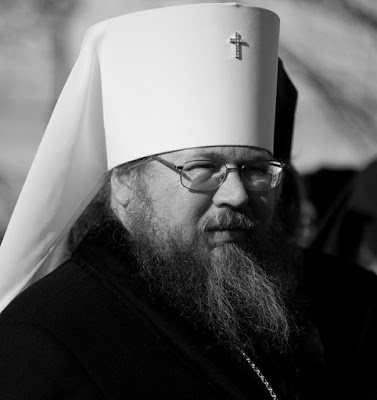
Metropolitan Jonah (Paffhausen)
– Vladyka Jonah, for how long now have you been in the Russian Church Abroad?
– A little over two years.
– A little over two years? I thought you came to us much longer, actually.
– Well, I’ve actually been primarily attending the services in the Russian Church Abroad for five years.
– Right, I see what you mean. Alright. Vladyka, I believe – I don’t know if you agree with this or not – I think there is some consensus in the Orthodox world in North America that the Russian Church Abroad has a strong, impressive tradition of piety, tradition that is coming back from old Russia, and Russian Church Abroad clergy are admired for their self-sacrifice and for their devotion. But, comparing Russian Church Abroad clergy’s situation with other churches’ clergy in this country, what would you say regarding this?
– Well, I think one of the biggest issues is the difference in compensation. In most Churches in America the priests are paid a living salary and benefits by the congregation so that they don’t have to work, and especially senior clergy are well compensated; of course, junior clergy not quite so much, but that’s normal. Missions’ clergy compensation of course is a little more sketchy. I think the next step in the growth of the Russian Orthodox Church Outside of Russia needs to be a complete re-visioning of the whole system, not only of the support of the clergy but also the whole financial system for the support of the Church because there are definite things that would be extremely helpful – administrative kinds of structures and various kinds of funds to assist the clergy, to assist education, and to build temples and not only structures but institutions.

– Right, but we don’t even have a Pension Committee in our Russian Church Abroad, and sometimes you hear that it’s really too complicated and we don’t have means, we don’t have resources, and basically, our outstanding clergyman are expected to work at additional jobs, so what would be your response to this – that it’s impossible to change?
– Well, it’s certainly possible to change. The Orthodox Church in America started out probably in a very similar position. The ROCOR does have new immigrants. It also has a lot of people who are very well-established, well-educated, and have highly lucrative jobs. What has not been taught is the critical importance of supporting the Church on a substantial level. In other words, a constant financial commitment on a communal basis that will allow the Church to develop itself and to develop programs and ministries that people will need, and to develop outreach. There are some very good things that go on in the Russian Church Abroad. One of the things that I was particularly impressed with in Australia was their homes for the elderly, assisted living and even nursing homes that are supported by the Church, and in some cities, there are multiple institutions. There is a good consciousness of that kind of humanitarian outreach. That’s one of things that right now is very difficult to do.
There is that tradition in the past in the Russian Church Abroad. There is still the Tolstoy Foundation in America. There are a couple of nursing homes and things like that but those need to be rebuilt, rethought, redone, and revivified. And, unfortunately, it takes money. People aren’t going to be able to… well, let’s put it this way: you take a young guy who goes to seminary. What kind of a future is he looking at? He’s looking at a secular job, which is going to occupy 75% of his time, and the rest of the time, even as a priest, is a volunteer position.
– Almost volunteer…
– Almost volunteer – yes. And it’s nice that people want to do that, and it’s a remarkable and commendable thing that people are willing to make that kind of sacrifice. And, there is an advantage – that it enables a priest to be free of the control of the parish council: he’s not afraid for his salary [in order] to make the necessary kind of decisions. But, on the whole, it makes life very difficult. I believe it’s a great shame to the Church when you have priests who are not able to pay their bills and support their families, or are on welfare with food stamps.
I believe what happens is that we deal with consequences of the previous refugee epoch when everyone was poor and everybody basically worked on a voluntary basis. But the question is: is this model really sustainable for modern reality? Is this something that we need to carry on or is it a cycle that has to be broken down?
It’s a cycle that has to be broken down because it’s not sustainable. I think one of the things is that the ROCOR needs to come to terms with the fact that it is an American Church – in America, it’s an American Church; in Canada, it’s a Canadian Church; in Australia, it’s an Australian Church.
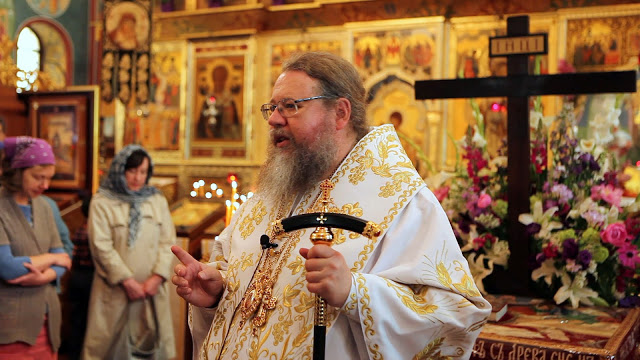
– What does this mean? What does your emphasis mean?
– It means that, regardless of language, regardless of the cultural basis, we’re here to stay, and we need to take up that universal mission that the Lord commanded, which is to go out and bring people in, to preach and teach and to make disciples. Whether we are ministering to new converts and inquirers or to Russian immigrants, the work is the same: to establish communities and build churches to reach out and bring people to Christ.
– And use resources as best we can?
– Use the resources as best we can. One of things that I think is really important too, is that there is a kind of traditional pattern in American culture of how parishes are structured, and it’s interesting: it doesn’t matter — Protestant, Catholic, Orthodox. You have a church and they are all structured the same way. A part of that’s just the American laws under which the church operates. And there are certain kinds of expectations, and even the taxes are structured so that there are certain kinds of expectations – taxes for the clergy, the tax structure of the church itself. But, I think, one of the most important things is that we have to give seminarians a hope for the future. I think, one of the most important things is that we have to give seminarians a hope for the future. Holy Trinity Seminary (Jordanville, NY) is moving now beyond just a Bachelor of Theology to a Master’s degree. The administration of Holy Trinity Seminary and its trustees do the great work of enabling young men to obtain a terminal Master of Divinity degree with minimal fees or no costs through the generosity of kind benefactors. But we should start considering some kind of financial incentives that will enable graduates to earn a living as a result. Otherwise, it’s totally demoralizing to the seminarians, and this is a really very important issue.
Conducted by Deacon Andrei Psarev

